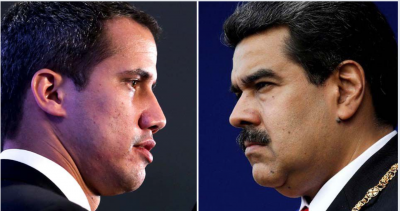Political Pardon Given by Maduro May Be a Checkmate against Venezuelan Opposition

In Venezuela, Juan Guaidó no longer appears to be the leader of the opposition. The forgiveness of 110 opponents by President Nicolás Maduro completely fragmented the political wing opposing the regime, which, in practice, removes from Guaidó the “monopoly” of militancy against the government. Maduro’s decision to forgive as many opponents as possible seems particularly strategic in an election year. For the December 2020 parliamentary elections, Maduro’s allies represent the only unified and solidly based political wing in the country, while currently his opponents are fragmented into several factions.
Another oppositionist leader, Henrique Capriles has already announced that he will dispute the elections. In recent times, after a long period of silence and inactivity, Capriles has occupied an increasingly prominent place in Venezuelan politics, diminishing Guaidó’s influence on the opposition. Capriles seems to have a more interesting political alternative for some opposition groups than the proposal by Guaidó, who is a politician absolutely aligned with external interests and who openly defends Venezuela’s total subordination to Washington.
[In the 2012 presidential Elections, Capriles received financial as well as political support from the Hanns Seidel Foundation linked to the right of Bavaria’s Christian Democratic Party, M.C. GR Editor]
Perhaps this was the reason for the fall of Guaidó’s political strength. 2020 was for the opposition leader the year of his abrupt fall. On February 5, Guaidó attended a conference at the Capitol in Washington DC and was applauded by Donald Trump, Nancy Pelosi and everyone in attendance. At that time, the illusion that Guaidó was in fact the president of Venezuela was fully consolidated. Guaidó himself believed to be the country’s president, which was the starting point of his downfall.
It seemed inevitable that the invention of the “Guaidó’s presidency” would result in the opposition being closed to the Venezuelan political reality. The history of the opposition leader, since his recognition in January 2019 by Trump, is a succession of errors and deficiencies that denounce his total inability to lead the country. The most notable mistakes so far have been his explicit participation in the landing of Colombian mercenaries on the Venezuelan coast and the leakage of his connections with drug trafficking in South America, which has greatly weakened his public image inside and outside Venezuela.
Guaidó’s decline, at first, had little impact on the Venezuelan opposition, as there was his “recognition” as the country’s president. But this illusion could not last long. The proximity of the parliamentary elections in December aroused in the Venezuelan opposition a strong wave of political realism and led different factions to assume the obvious truth: Guaidó is not the president of the country. This fact becomes even more evident when Maduro pardons and legalizes more than one hundred opponents, creating ties of cordiality in internal disputes – something that Guaidó still refuses to accept. Then a scenario was created in which the opposition is divided between those who recognize the legitimacy of the government and oppose it politically in the elections and, on the other hand, Guaidó, who recognizes himself as president with American support. This new scenario will completely change the way in which political disputes in Venezuela will take place and may even destabilize the opposition’s international alliances.
How long will Washington invest in Guaidó as its ally in opposing Maduro? What makes Guaidó more interesting than, for example, the political figure of Capriles or any other politician who will announce his candidacy for the December elections? Guaidó will not run in the parliamentary elections because he believes he is the president of the country, while other politicians will run and will be able to make real and effective opposition against Maduro. Will international actors interested in the fall of the government really continue to fuel the illusion that Guaidó is the president rather than supporting opponents within Parliament? It is a question that remains unanswered, but we can predict the outcome.
Indeed, there is no future for the Venezuelan opposition as it is today. The entire political wing that opposes Maduro is absolutely fragmented, with no unity of thought among its representatives, much less a solid national project. The only thing in common that opponents want is to overthrow Maduro, but that will not happen so easily. The Venezuelan government remains strong and well-structured, with an effective political apparatus at its disposal, which cannot be seen in the opposition. Opponents’ political forgiveness was a checkmate for the next elections. The weakness of the opposition became clear and all of its representatives were disadvantaged: Guaidó lost political strength and will possibly be without international alliances; the other opponents have broken ties with Guaidó and are not strong enough to face the government, even though they may run for election.
*
Note to readers: please click the share buttons above or below. Forward this article to your email lists. Crosspost on your blog site, internet forums. etc.
This article was originally published on InfoBrics.
Lucas Leiroz is a research fellow in international law at the Federal University of Rio de Janeiro.
Featured image is from InfoBrics

